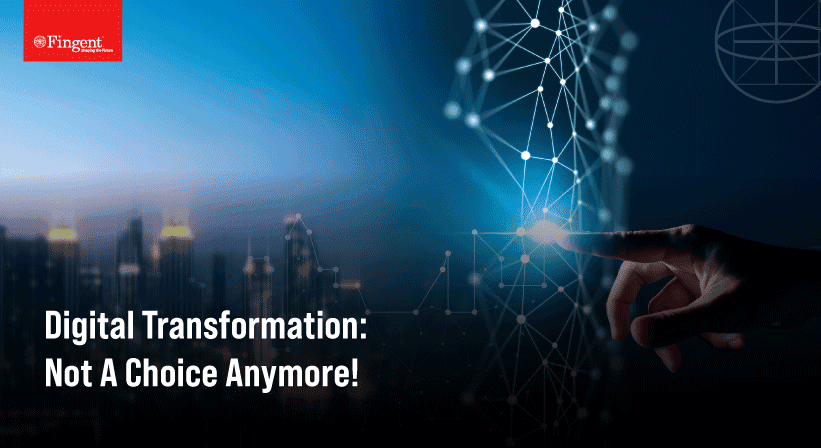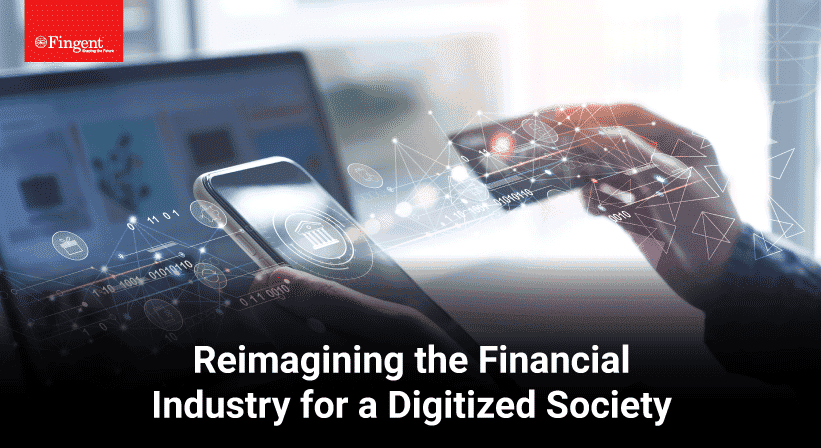Digital-First Strategies: A Roadmap to Competitive Advantage
In today’s ever-evolving business landscape, the concept of “Digital-First” isn’t just a buzzword; it’s a strategic necessity. For CIOs, CTOs, and IT Managers, embracing digital transformation isn’t just a choice; it’s a critical strategic move. It’s the pathway to gaining a competitive advantage, exceeding customer expectations, leveraging data for success, accessing global markets, and fortifying your digital defenses.
In this blog, we’ll explore why launching your business with cutting-edge technology is of paramount importance.
Why Starting with Cutting-Edge Technology Matters
Here are some key aspects and applications of Digital first:
1. Online Presence: Your Digital Storefront
In an increasingly online world, your digital presence is your storefront, and its impact is profound.

If your business lacks a robust online presence, you’re missing out on a significant slice of this digital pie. Your online presence is your digital storefront and first impressions matter. It’s the place where your customers interact with your brand. Think of it as the front window of a physical store – it needs to be inviting and informative.
Applications: E-commerce, Social Media, Content Marketing
2. Customer-Centricity Rules
PwC’s Global Consumer Insights Survey reveals that 43% of consumers plan to increase online shopping in the next six months. The study further said, “Consumers are seeking less friction…they’re continuing to experiment with the next generation of digital platforms, including the metaverse.” Starting with cutting-edge technology allows you to provide those seamless, personalized experiences that customers crave while they shop online.
3. Mobile-First Design: Meeting Customers Where They Are
With the proliferation of smartphones, being mobile-friendly isn’t just a choice; it’s a necessity. Oberlo reports that mobile devices account for 55.5% of web traffic globally, surpassing desktop usage. Ignoring mobile users means missing out on more than half of your potential audience. Consider mobile devices as the primary means through which customers engage with your brand – like a shop accessible anytime, anywhere.
Applications: Responsive Websites, Mobile Apps, SMS Marketing
4. Competitive Imperative

Jorge Lopez, a distinguished VP analyst at Gartner, says, “Boards of directors (BoDs) have reached a point where digital business strategy and overall business strategy are one and the same.” It’s clear that being “Digital-First” is no longer a choice; it’s a competitive imperative.
5. Security and Privacy: The Digital Trust Factor
As digital interactions increase, so does the importance of security and privacy. Cybersecurity Ventures predicts that cybercrime will cost the world $6 trillion annually by 2021. Neglecting security is a gamble on your business’s survival. Cyber threats are rising! The worldwide expense of a data breach in 2023 stood at $4.45 million, reflecting a 15% rise over a three-year period. Cyberattacks are a growing concern for businesses and consumers alike.
Applications: Encryption, Multi-Factor Authentication (MFA), Regular Audits
6. Data-Driven Success
McKinsey’s research shows that data-driven organizations are 23 times more likely to acquire customers, six times more likely to retain customers, and 19 times more likely to be profitable. Beginning your business with cutting-edge technology means you’re setting up to be data-driven from the get-go.
Read more: A Quick Guide To A Successful Digital Transformation Journey!
Key Technologies Commonly Implemented to Enhance Digital-First Initiatives
To thrive in the digital environment, it’s crucial to understand the core technologies that underpin digital-first initiatives. Here, we’ll delve into some of the key technologies providing a clear overview of their significance.
1. Cloud Computing: The Foundation of Scalability
Cloud computing is the engine powering the scalability and flexibility of modern digital solutions. Services like AWS, Azure, and Google Cloud provide businesses with the ability to store data, run applications, and access resources remotely. This technology not only reduces infrastructure costs but also enables rapid scalability, making it essential for digital-first operations.
2. Artificial Intelligence (AI): The Catalyst for Data-Driven Insights
AI encompasses a range of technologies, including machine learning and natural language processing. It enables businesses to analyze vast datasets, make predictions, automate processes, and gain valuable insights. AI is the driving force behind personalized recommendations, predictive analytics, and automation that enhance the efficiency and decision-making capabilities of digital-first organizations.
3. Internet of Things (IoT): The Network of Connected Devices
IoT has far-reaching applications, from smart manufacturing and asset tracking to environmental monitoring and healthcare devices. IoT enables businesses to gather real-time information, improve operational efficiency, and create new services and experiences.
4. Blockchain: The Trustworthy Digital Ledger
Blockchain is a distributed ledger technology that offers transparency, security, and trust in digital transactions. It’s the foundation of cryptocurrencies like Bitcoin and is increasingly used in supply chain management, voting systems, and more. Blockchain ensures the integrity and immutability of data, reducing the need for intermediaries and enhancing security.
5. 5G Technology: The Accelerator of Connectivity
5G, the fifth generation of wireless technology, brings unprecedented speed and connectivity. It enables near-instantaneous data transfer, low latency, and support for a massive number of connected devices. Businesses leverage 5G for applications like augmented reality, autonomous vehicles, and real-time communication, enhancing customer experiences and expanding possibilities. These technologies and others form the backbone of digital-first initiatives, offering businesses the tools to adapt, innovate, and thrive in the digital age.
Use Cases Across Different Sectors
The digital-first revolution isn’t confined to a single industry; it’s a tide sweeping across sectors, reshaping the way businesses operate, interact with customers, and innovate. Let’s explore some use cases in a variety of sectors, showcasing how digital-first strategies are driving transformation and success.
1. Retail and E-commerce
- Personalized Shopping Experiences: In the retail and e-commerce realm, digital-first initiatives are all about creating personalized shopping journeys. AI-driven recommendation engines analyze customer behavior and preferences to suggest products tailored to individual tastes. This drives sales and elevates customer satisfaction to unprecedented levels.
- Seamless Checkout Processes: Digital-first technologies streamline the checkout process with one-click payments, reducing cart abandonment rates. Amazon’s “Buy Now with 1-Click” is a prime example of simplifying the purchasing journey for customers.
2. Manufacturing
- Predictive Maintenance: In manufacturing, IoT sensors are deployed on machinery to monitor performance and detect anomalies. These sensors provide real-time data, enabling predictive maintenance. Machines are serviced before they break down, minimizing downtime and optimizing production.
- Quality Control and Automation: Machine learning models can be employed to analyze images and identify defects in real-time thus ensuring products meet stringent quality standards. Automation and robotics further enhance manufacturing efficiency, reducing errors and labor costs.
3. Financial Services (Fintech)
- Digital Banking: Fintech companies are revolutionizing the financial sector with digital banking services. Mobile apps provide customers with access to their accounts, transactions, and even investment opportunities, all in the palm of their hands.
- Cryptocurrencies and Blockchain: Blockchain technology is reshaping the way financial transactions occur. Cryptocurrencies like Bitcoin offer secure, borderless, and decentralized digital currencies, challenging traditional banking systems.
4. Education (EdTech)
- Online Learning Platforms: EdTech platforms provide access to a vast array of educational resources, from interactive courses to video lectures. These platforms enable flexible, personalized learning experiences for students of all ages.
- AI-Powered Tutors: AI-driven virtual tutors assist students in their studies by providing immediate feedback and tailored learning paths. They adapt to individual learning styles and paces, enhancing educational outcomes.
5. Transportation and Logistics
- Route Optimization: Transportation companies use IoT and GPS technology to optimize routes, reducing fuel consumption and delivery times. Real-time tracking and predictive analytics ensure goods are delivered efficiently.
- Autonomous Vehicles: The transportation sector is at the forefront of autonomous vehicle development. These vehicles promise increased safety, reduced labor costs, and improved transportation efficiency.
6. Smart Cities
- Traffic Management: Smart cities employ IoT sensors and real-time data analysis to manage traffic flow dynamically. This reduces congestion, minimizes travel times, and improves air quality.
- Sustainable Energy: Smart grids and renewable energy sources enable cities to reduce their carbon footprint. IoT technology monitors energy consumption and production, optimizing energy use and promoting sustainability.
In each of these sectors, digital-first initiatives are not just about adopting technology; they’re about harnessing it to drive innovation, improve efficiency, and meet evolving customer expectations. The possibilities are vast, and the results are transformative, making the digital-first approach a crucial strategy for organizations in every industry.
How Can Fingent Help?
In a digital-first world, success hinges on leveraging technology effectively. Fingent is your trusted partner on this journey, helping you harness the power of digital to drive innovation, growth, and competitive advantage. Together, we can navigate the complex digital landscape and turn challenges into opportunities. The future is digital, and Fingent is here to ensure you’re always one step ahead.
With our expertise in software development, AI, IoT, and more, we can tailor solutions to your specific needs. Whether you’re in retail, manufacturing, finance, education, transportation, or any other sector, we’ve got you covered. Give us a call.
Stay up to date on what's new

Recommended Posts

20 Dec 2023 B2B
Driving Smart and Sustainable Agriculture with Customized Technology!
As the world grapples with the challenges of climate change, soil degradation, and resource scarcity, agricultural organizations find themselves at a critical juncture. The urgency for adopting sustainable farming practices,……

10 Nov 2023 B2B
Is Your Digital Transformation Initiative Really Working?
To reiterate John F. Kennedy, “Change is the law of life, and those who look only to the past or present are certain to miss the future.” The digital world……

25 Jul 2023 B2B
A Quick Guide To A Successful Digital Transformation Journey!
Today, technology seamlessly weaves its way into every aspect of our daily lives. That's precisely what digital transformation is all about - a process that enables businesses to harness the……

24 Mar 2023 Financial Services B2B
Reimagining the Financial Industry for a Digitized Society
Digital technologies are evolving at an unprecedented rate. Major innovations, such as artificial intelligence tools, machine learning software, cloud computing resources, and big data, have already reshaped the landscape of……
Featured Blogs
Stay up to date on
what's new














